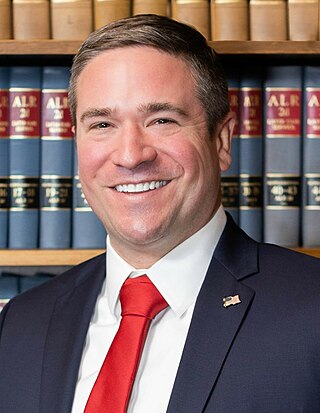Related Research Articles
Consumer privacy is information privacy as it relates to the consumers of products and services.
Proposition 65 is a California law passed by direct voter initiative in 1986 by a 63%–37% vote. Its goals are to protect drinking water sources from toxic substances that cause cancer or birth defects and to reduce or eliminate exposures to those chemicals generally, such as in consumer products, by requiring warnings in advance of those exposures, with the intended goal being that companies choose to reformulate their products without the substances rather than simply providing notice of such substances in their product.

The Fair Debt Collection Practices Act (FDCPA), Pub. L. 95-109; 91 Stat. 874, codified as 15 U.S.C. § 1692 –1692p, approved on September 20, 1977, is a consumer protection amendment, establishing legal protection from abusive debt collection practices, to the Consumer Credit Protection Act, as Title VIII of that Act. The statute's stated purposes are: to eliminate abusive practices in the collection of consumer debts, to promote fair debt collection, and to provide consumers with an avenue for disputing and obtaining validation of debt information in order to ensure the information's accuracy. The Act creates guidelines under which debt collectors may conduct business, defines rights of consumers involved with debt collectors, and prescribes penalties and remedies for violations of the Act. It is sometimes used in conjunction with the Fair Credit Reporting Act.

A sweepstake is a type of contest where a prize or prizes may be awarded to a winner or winners. Sweepstakes began as a form of lottery that were tied to products sold. In response, the FCC and FTC refined U.S. broadcasting laws. Under these laws sweepstakes became strictly "No purchase necessary to enter or win" and "A purchase will not increase your chances of winning", especially since many sweepstakes companies skirted the law by stating only "no purchase necessary to enter", removing the consideration to stop abuse of sweepstakes. Today, sweepstakes in the United States are used as marketing promotions to reward existing consumers and to draw attention to a product. By definition, the winner is determined by pure random chance rather than skill.

The Video Privacy Protection Act (VPPA) is a bill that was passed by the United States Congress in 1988 as Pub. L.Tooltip Public Law (United States) 100–618 and signed into law by President Ronald Reagan. It was created to prevent what it refers to as "wrongful disclosure of video tape rental or sale records" or similar audio visual materials, to cover items such as video games and the future DVD format. Congress passed the VPPA after Robert Bork's video rental history was published during his Supreme Court nomination and it became known as the "Bork bill". It makes any "video tape service provider" that discloses rental information outside the ordinary course of business liable for up to $2500 in actual damages.
In common law jurisdictions, an implied warranty is a contract law term for certain assurances that are presumed to be made in the sale of products or real property, due to the circumstances of the sale. These assurances are characterized as warranties regardless of whether the seller has expressly promised them orally or in writing. They include an implied warranty of fitness for a particular purpose, an implied warranty of merchantability for products, implied warranty of workmanlike quality for services, and an implied warranty of habitability for a home.

The Attorney General of the State of Maryland is the chief legal officer of the State of Maryland in the United States and is elected by the people every four years with no term limits. To run for the office a person must be a citizen of and qualified voter in Maryland and must have lived and practiced law in the state for at least ten years.
The New Hampshire Department of Justice (NHDOJ) is a government agency of the U.S. state of New Hampshire. The department is led by the Attorney General of New Hampshire, currently John Formella. NHDOJ headquarters are located at 33 Capitol Street in Concord.

The attorney general of Oklahoma is the State Attorney General for the state of Oklahoma. The attorney general serves as the chief legal and law enforcement officer of the State of Oklahoma and head of the Office of the Oklahoma Attorney General. The attorney general is responsible for providing legal advice to the other departments and agencies of the executive branch, legislative branch and judicial branch of the state government. The attorney general is also responsible for the prosecution of offenses against Oklahoma law and advocate for the basic legal rights of Oklahoma residents.

Movieland, also known as Movieland.com, Moviepass.tv and Popcorn.net, was a subscription-based movie download service that has been the subject of thousands of complaints to the Federal Trade Commission, the Washington State Attorney General's Office, the Better Business Bureau, and other agencies by consumers who said they were held hostage by its repeated pop-up windows and demands for payment, triggered after a free 3-day trial period. Many said they had never even heard of Movieland until they saw their first pop-up. Movieland advertised that the service had "no spyware", and that no personal information would need to be filled out to begin the free trial.

The Office of the Missouri Attorney General was created in 1806 when Missouri was part of the Louisiana Territory. Missouri's first Constitution in 1820 provided for an appointed attorney general, but since the 1865 Constitution, the Attorney General has been elected. As of January 2023, there have been 44 attorneys general in Missouri.

The attorney general of Alabama is an elected, constitutional officer of the State of Alabama. The office of the attorney general is located at the state capitol in Montgomery, Alabama. Henry Hitchcock was elected Alabama's first attorney general in 1819.

The Attorney General of Iowa is the chief legal officer of the State of Iowa, United States.
Consumer protection is the practice of safeguarding buyers of goods and services, and the public, against unfair practices in the marketplace. Consumer protection measures are often established by law. Such laws are intended to prevent businesses from engaging in fraud or specified unfair practices to gain an advantage over competitors or to mislead consumers. They may also provide additional protection for the general public which may be impacted by a product even when they are not the direct purchaser or consumer of that product. For example, government regulations may require businesses to disclose detailed information about their products—particularly in areas where public health or safety is an issue, such as with food or automobiles.

The Nevada Attorney General is the chief legal officer for the U.S. state of Nevada. The functions of the office are set forth in Nevada Revised Statutes, Chapter 228. The Attorney General represents the people of Nevada in civil and criminal matters before trial, appellate and the supreme courts of Nevada and the United States. The Attorney General also serves as legal counsel to state officers and, with few exceptions, to state agencies, boards and commissions.

The Attorney General of the State of Colorado is the chief legal officer for the U.S. State of Colorado and the head of the Colorado Department of Law, a principal department of the Colorado state government. It is an elected position with a four-year term, and follows the same schedule as election of the governor. The incumbent Colorado Attorney General is Democrat Phil Weiser, who was elected in November 2018 to a four-year term that began on January 8, 2019.
This report is the result of a student task force exploration of the Federal Trade Commission (FTC), completed over the course of a summer job led by Ralph Nader. The seven law student volunteers began their evaluation of the FTC in June 1968, and published a revised and expanded version of the report as a book in January 1969.

The Office of the Attorney General (OAG) is an agency of the Oklahoma state government that is headed by the Attorney General of Oklahoma. The OAG is responsible for supervising the administration of justice across the State, providing legal assistance to the State government, and prosecuting violators of State law.
The Arizona Consumer Fraud Act (ACFA) is a package of Arizona state laws that give protections to consumers in almost any kind of transaction related to the sale or advertisement of merchandise. Both the state and a private citizen may bring action under the act, however a private citizen's lawsuit must be brought within one year from the date of the claim.
Jonathan T. Skrmetti is an American attorney and public official. He currently serves as the 28th Attorney General and Reporter for the state of Tennessee.
References
- ↑ Zimmering, Paul (January 1976). "Louisiana's Consumer Protection Law--Three Years of Operation". Tulane Law Review.
- ↑ "Glossary of Closing Descriptions and Useful Legal Terms". State of Oregon Department of Justice. Retrieved 22 April 2013.
- ↑ Evans, Matthew; John Elder (February 2006). "Who?: When?: Where?: What?: How?: An update on the Tennessee Consumer Protection Act". Tennessee Bar Journal.